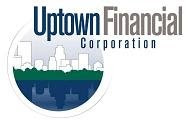Uptown Financial is here again to help Educate our Friends.
We have successfully used the FHA 203(k) Rehab loan program in partnership with a nonprofit organization, such as the Nehemiah Program (down payment assistance) to rehabilitate properties in Minnesota and Wisconsin. Due to the rising number of foreclosed properties in Minnesota and Wisconsin, we feel it is an important tool for community and neighborhood revitalization and for expanding homeownership opportunities to Minnesota Home buyers and Wisconsin Home Buyers. Not only is the FHA 203(k) rehab loan great for MN and WI homeowners and home buyers, but we suggest that other FHA approved lenders get on board.
Who needs a Rehab Loan from FHA
Do you need a Rehab Loan Program from an FHA approved lender?
The FHA 203(k) streamline program is the Federal Housing Administration’s primary program for the rehab loans for single family dwellings across the nation. The FHA 203 (k) Rehab loan program allows Minnesota and Wisconsin homebuyers and Minnesota and Wisconsin homeowners the capacity to purchase/refinance single family homes and finance the basic repair costs into a FHA Rehab loan. Minnesota first time home buyers and Wisconsin first time home buyers may use the FHA 203 (K) Rehab loan along with the Nehemiah Program (down payment assistance).
Below are the FHA 203 (k) Rehab loan program highlights:
- Allowed on purchases and refinance transactions for single family dwellings including those where the property is owned free and clear.
- Can be used for the repairs and improvements on purchases of HUD homes.
- Basic repairs cannot exceed $35,000. Only two draws will be allowed.
- Owner occupancy required. 1-4 Units (Existing property must be at least one year old)
- Fixed 30 year term only; no buydown option available.
- All repairs and improvements must be completed within 6 months.
Below are the FHA 203(k) Rehab loan includes the following steps:
- A potential homebuyer locates a fixer-upper and executes a sales contract after doing a feasibility analysis of the property with their real estate professional.
- The contract should state that the buyer is seeking a 203(k) loan and that the contract is contingent on loan approval based on additional required repairs by the FHA or the lender.
- The homebuyer then selects an FHA-approved 203(k) lender and arranges for a detailed proposal showing the scope of work to be done, including a detailed cost estimate on each repair or improvement of the project.
- The appraisal is performed to determine the value of the property after renovation.
- If the borrower passes the lender's credit-worthiness test, the loan closes for an amount that will cover the purchase or refinance cost of the property, the remodeling costs and the allowable closing costs.
- At closing, the seller of the property is paid off and the remaining funds are put in an escrow account to pay for the repairs and improvements during the rehabilitation period.
If you have questions about the FHA 203(k) Rehab loan program, we suggest that you get in touch with us to learn more. Uptown Financial Corp. is based out of sunny Minneapolis, MN. Please feel free to contact Ben Coulter @ 612-216-1388.
Disclaimer: Not every FHA approved lender has this program available for their clients.
If you found this information helpful, send me your comments or contact me at Ben@UptownFinancial.com ; 612-216-1388.
Feel free to visit us on the web @ http://www.uptownfinancial.com/


No comments:
Post a Comment